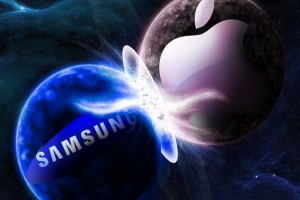 Apple has requested a court in California to sanction Samsung Electronics in a patent infringement dispute by granting judgement in favour of Apple, after the South Korean company released to the press documents including exhibits that were not allowed as evidence in the suit.
Apple has requested a court in California to sanction Samsung Electronics in a patent infringement dispute by granting judgement in favour of Apple, after the South Korean company released to the press documents including exhibits that were not allowed as evidence in the suit.
The exhibits that Samsung distributed include images meant to establish that Samsung developed a phone with several elements of the iPhone’s design ahead of the introduction of the iPhone in January, 2007. Also included were documents that sought to prove that Apple allegedly used a prototype inspired by Sony designs to arrive at the design of the iPhone.
In a filing to the U.S. District Court for the Northern District of California late Wednesday, Apple said the court should sanction Samsung by granting judgment in Apple’s favour on its claim that Samsung infringes Apple’s phone design patents, and by granting judgment that those patents are not invalid.
Alternately and at a minimum, Apple said, the court should instruct the jury that Samsung engaged in serious misconduct and the court has as a result made a finding that Samsung copied the asserted designs and features from Apple products. The court should also prevent Samsung from further mentioning or offering any evidence regarding the “Sony design exercise” for any purpose, Apple said.
In a letter to District Judge Lucy Koh on Wednesday, Apple’s counsel William F. Lee alleged that Samsung was attempting to influence the jury. Samsung’s release was targeted to expose the jury to excluded evidence through the press, Apple reiterated in the filing.
Samsung’s actions substantially increased the risk that the jury will see or be influenced by someone who has seen the evidence that the court has excluded, according to Apple’s filing. “While disseminating excluded evidence to the media would be a problem in any case, it is particularly problematic in a high profile technology case in the internet age, when intentional or inadvertent exposure to excluded evidence is extraordinarily easy,” it added.
In a declaration filed on Wednesday, Samsung attorney John Quinn said he had approved the release of a brief statement and proposed trial exhibits after several requests from reporters. Quinn said all the documents had previously been in the public record. The move was not intended to influence jurors, he said.
Apple’s counsel Lee has however cited news reports to question whether Quinn’s decision was indeed a limited response to certain “requests from members of the media.” Even if the press had asked for these materials, he should not have provided them, but that is not what the press is reporting, Lee said in the filing. Press reports make clear that it was an unsolicited release which aimed to disseminate Samsung’s excluded evidence widely among the press, he added.
Apple said it will not request a mistrial. “A mistrial would play directly into Samsung’s strategy of delay, and only reward Samsung’s misconduct,” it said in the filing.
Samsung already has been sanctioned four times in the case for discovery abuses, Lee said. Most recently, Samsung was sanctioned for destroying evidence. “Litigation misconduct is apparently a part of Samsung’s litigation strategy–and limited sanctions have not deterred Samsung from such misconduct,” he added.
Samsung was not immediately available for comment.





